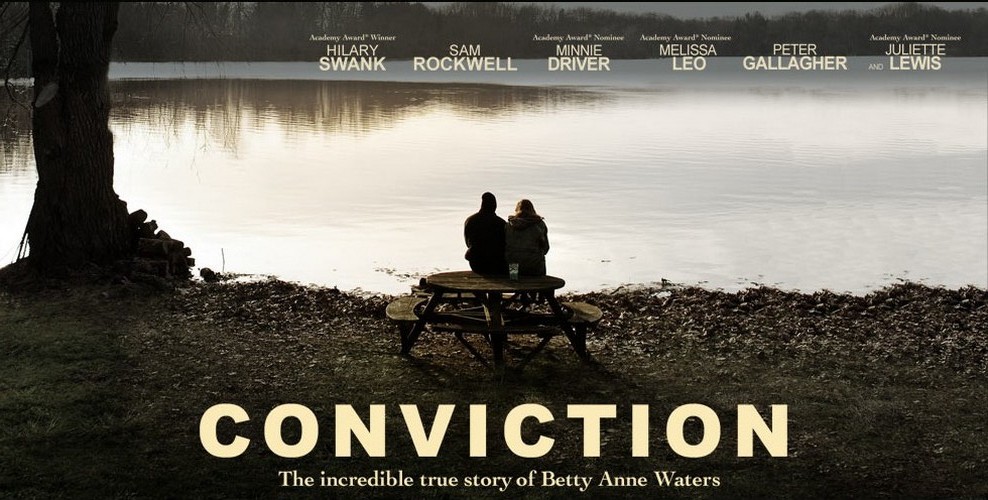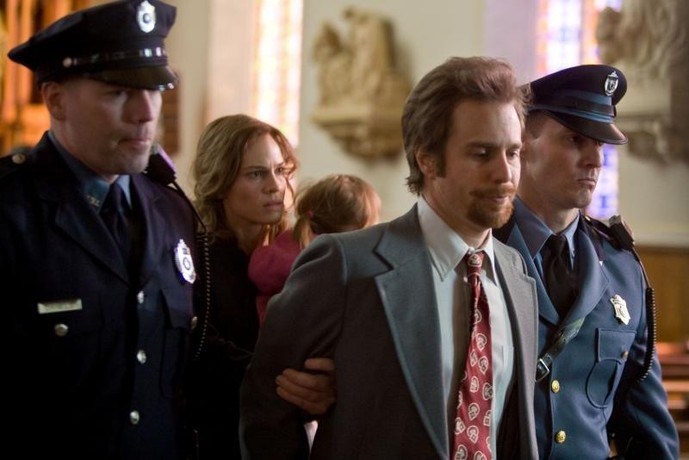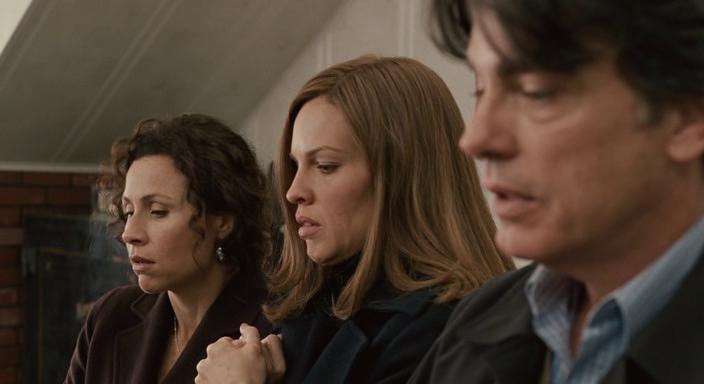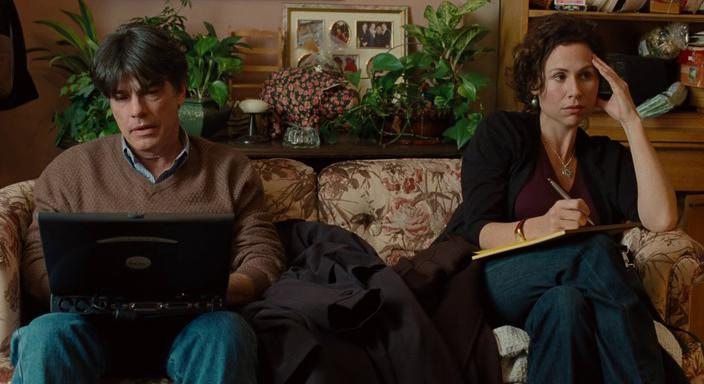Conviction (2010)

Conviction (2010) is an inspiring American legal drama film directed by Tony Goldwyn and written by Pamela Gray. The film is based on the true story of Betty Anne Waters, a woman who spent years fighting to prove the innocence of her brother, Kenny Waters, who was wrongfully convicted of murder. Starring Hilary Swank as Betty Anne and Sam Rockwell as Kenny, the movie explores themes of justice, family loyalty, and the pursuit of truth, while shedding light on the flaws in the American justice system.
The story follows Betty Anne Waters, a working-class woman who is devastated when her brother, Kenny Waters, is convicted of a murder he insists he did not commit. Betty Anne is determined to help her brother, and despite not having any legal training, she decides to become a lawyer. Her journey is long and arduous, as she works tirelessly to gather new evidence, study law, and challenge the conviction. The film showcases Betty Anne’s dedication to her brother and her unrelenting pursuit of justice, even when faced with numerous obstacles.
Hilary Swank’s performance as Betty Anne Waters is one of the highlights of the film. She portrays the character’s determination, intelligence, and emotional depth with great nuance, capturing the essence of a woman who will stop at nothing to right a wrong. Sam Rockwell, playing Kenny Waters, gives an equally compelling performance, bringing vulnerability and authenticity to his role as a man who has spent over a decade in prison for a crime he didn’t commit. The chemistry between Swank and Rockwell is powerful, adding emotional weight to the story and making their bond as siblings feel genuine and heartfelt.

The narrative of Conviction also emphasizes the themes of perseverance and the flaws in the legal system. Betty Anne’s determination to free her brother highlights the importance of family loyalty and personal sacrifice, as she faces numerous setbacks in her pursuit of justice. The film also brings attention to the systemic issues within the criminal justice system, such as wrongful convictions, lack of resources, and the difficulty of overturning a case once a conviction has been made. Conviction serves as a reminder of the importance of fighting for justice, even when the odds seem insurmountable.

The pacing of Conviction allows the audience to become deeply invested in Betty Anne’s journey, as her relentless efforts span over many years. The film balances moments of personal struggle with triumphant victories, making the audience feel both the heartache and the eventual sense of relief when justice is finally served. The emotional stakes are high, and the film does an excellent job of portraying the toll this battle takes on Betty Anne’s personal life, including her relationships with her family and her own sense of identity.

In conclusion, Conviction is a powerful and moving film that tells the true story of one woman’s fight to free her wrongly convicted brother. With standout performances from Hilary Swank and Sam Rockwell, the film offers a compelling look at the determination, sacrifice, and emotional resilience required to challenge a flawed legal system. Conviction is an inspiring story about the pursuit of justice and the lengths a person will go to for their loved ones, making it a must-watch for anyone interested in stories of perseverance and legal reform.











